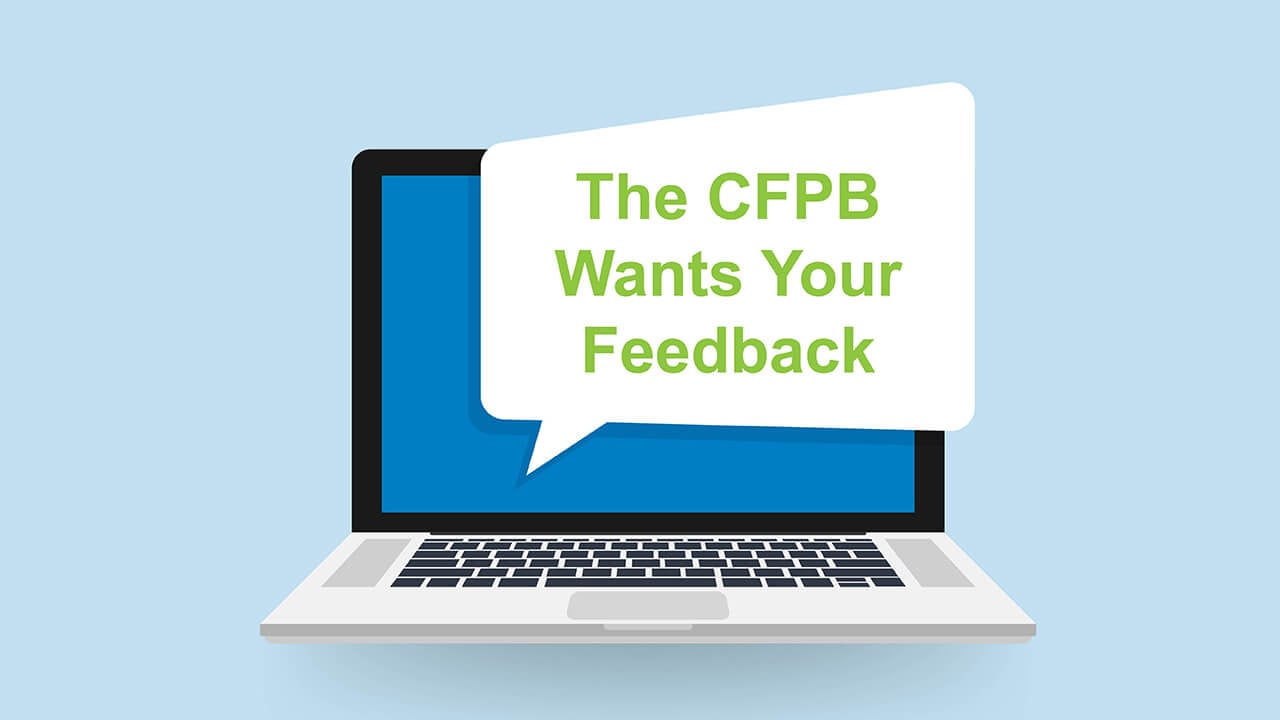CFPB Proposes New Rules for Mortgage Servicers
We’ve all grown accustomed to rules and change management, but what does the Consumer Financial Protection Bureau’s (CFPB) Proposed Rule mean for...

The Consumer Financial Protection Bureau’s updated mortgage servicing examination procedures pull from lessons learned since their last update in 2016, with a strong emphasis on exam findings from the COVID-19 pandemic. For mortgage servicers, new agency procedures can be daunting. The updates published on January 18, 2023, were issued as a resource and have been incorporated into the CFPB’s 1,812-page Supervision and Examination Manual. This is the manual that CFPB examiners will refer to during their next visit to your office. Understanding these changes and their impact is paramount. No pressure, but these updates need to be identified and incorporated into your processes to ensure your next CFPB exam goes well. Clarifire is here to help you explore some of the latest changes outlined by the CFPB and, more importantly, help you incorporate updates into your operational business processes.

Although many of the published changes do not represent new developments and should already be incorporated into your processes, it’s vitally important to know what the CFPB is focusing on in terms of consumer protection. One of the key changes in the new examination procedures underscores borrower communications, ensuring borrowers receive clear and comprehensive information regarding payment processing, escrow analysis, and, most importantly, loss mitigation. Servicing transfers, regulatory compliance, and foreclosures are also emphasized. Examples of infractions in these areas have, for the most part, been raised in previous issues of CFPB Supervisory Highlights.
The CFPB examination procedures are divided into ten modules. Each examination addresses one or more of these modules categorized under Routine Servicing, Default Servicing, and Foreclosure. Some of the new procedures address Module 1, Servicing Transfers, Loan Ownership Transfers, and Escrow Disclosures. This has long been an area of focus for the CFPB. Additionally, with changes in the economy and recessionary impact, servicing transfers will remain commonplace and as an exam area, necessitate attention. Even though the subsequent changes to this module are insignificant, servicers continue to evidence issues in meeting requirements and properly communicating with borrowers when servicing transfers occur. Check out CLARIFIRE CONTACTTM, a robust feature specifically created to provide confidence and transparency in borrower communications.
There are a number of updates that fall under Module 2, Payment Processing and Account Maintenance. Starting with fees for making payments and the corresponding verbal and written disclosures, the CFPB wants to make certain these are clearly defined for the borrower, including any third-party processing charges. Requirements are also intended to prevent actual servicer fees from exceeding the amount disclosed; examples include broker price opinions (BPOs) and inspections. Further changes under this module address electronic fund transfers (EFTs), compliance with the Equal Credit Opportunity Act (ECOA), Regulation B adverse action notifications, and Regulation Z restrictions on home equity modifications.
Examination changes can also be found under Module 4, Modification of Escrow Accounts and Insurance Products. Updates address the accuracy and timeliness of servicer escrow disbursement of funds related to home insurance premiums, as well as the accuracy and timeliness of private mortgage insurance cancellation. As you focus on account maintenance, from payment processing to escrow disbursements, CLARIFIRE® workflow automation software adds controls, governance, and visibility to deliver powerful interactive automation driving business processes and rules throughout your organization.
Loss mitigation is a key component of any CFPB examination. Changes to Module 8, Loss Mitigation, Early Intervention, and Continuity of Contact, and Module 9, Foreclosures, reflect this importance. Updates address participation in the Homeowner Assistance Fund (HAF) and accuracy of borrower information, loss mitigation offer letters and their compliance with deadlines, loss mitigation denial notices and compliance with Regulation X, and the accuracy of payment information on permanent loss mitigation options that fall at the end of forbearance. The foreclosure examination requirements address continued issues surrounding foreclosure initiation timeframes and consistency when servicers waive charges that impact default. These changes and guard rails can be easily adopted using flexible workflow automation.
Mortgage default servicing has been a focal point for Clarifire since its inception, providing meaningful expertise and innovation since the financial crisis. CLARIFIRE delivers modern workflow that fully automates loss mitigation workout capabilities and the respective workflows from application through eligibility and modification. Our proven automation is unsurpassed in the mortgage servicing industry. Delivered through a full-service SaaS model that is powered by an intelligent business decisioning engine, CLARIFIRE adds capabilities that provide the best-in-class application with proven processes plus the ability to build your own. CLARIFIRE extends the reach of your strategic initiatives by offering the power of change, flexibility, and ease of use.
Don’t wait for your next CFPB servicing examination! Eliminate the chaos and create seamless servicing with a trusted industry partner today. Contact us directly at 866.222.3370 or visit us at eClarifire.com. CLARIFIRE® is truly BRIGHTER AUTOMATION®.

Jane has applied her vast experience (over 25 years) operating process-driven businesses to successfully redefine client-focused service. Jane has worked with expert programmers to apply cutting-edge web-based technology to automate complex processes in industries such as Financial Services, Healthcare and enterprise workflow. Her vision confirms Clarifire's trajectory as a successful, scaling, Software-as-a-Service (SaaS) provider. A University of South Florida graduate, Jane has received many awards related to her entrepreneurial skills.
Like this article? Feel free to share this with a friend or colleague!

We’ve all grown accustomed to rules and change management, but what does the Consumer Financial Protection Bureau’s (CFPB) Proposed Rule mean for...

Not all servicers are alike, whether it’s size, portfolio composition, delinquency rates, or other criteria. Despite these disparities, the CFPB is...

The industry is migrating from forbearance to foreclosure, and mortgage servicers are seeing another change in the makeup of their default servicing...